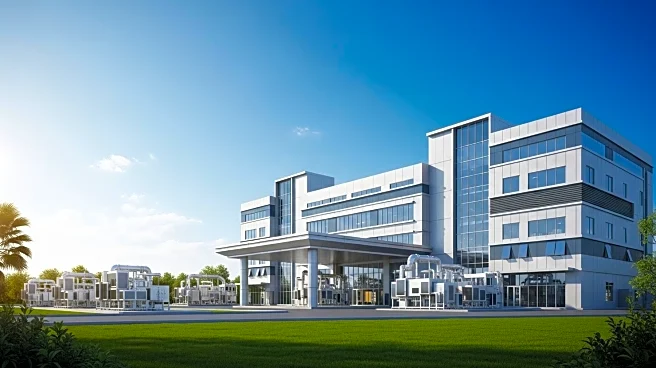What is the story about?
What's Happening?
Eli Lilly, a leading pharmaceutical company, has announced plans to construct a $5 billion manufacturing plant in Goochland County, Virginia. This facility will focus on producing artificial antibodies and developing new cancer and autoimmune drugs. The project is expected to create 1,800 construction jobs and 650 permanent positions, including roles for engineers, scientists, and lab technicians. The plant is part of Eli Lilly's broader $50 billion investment strategy to enhance domestic manufacturing capabilities and reduce reliance on foreign suppliers for raw ingredients. Virginia Governor Glenn Youngkin praised the initiative, highlighting its potential to strengthen the state's economy and secure the U.S. pharmaceutical supply chain.
Why It's Important?
The establishment of Eli Lilly's manufacturing plant in Virginia is significant for several reasons. It represents a substantial investment in the U.S. pharmaceutical industry, aiming to bolster domestic production and reduce dependency on international suppliers. This move is particularly relevant in the context of national security concerns about potential shortages during global crises, such as pandemics or geopolitical conflicts. The project is also expected to have a considerable economic impact on the local community, with state officials projecting a fourfold return on investment. Additionally, it aligns with Virginia's efforts to diversify its economy and develop a skilled workforce in the life sciences sector.
What's Next?
Construction of the Eli Lilly plant is set to begin promptly, with full-time hiring expected to progress over the next couple of years. The company plans to leverage the region's growing biopharma ecosystem to recruit talent. The site, strategically located near an interstate, was previously prepared for another project, allowing for expedited construction. As the plant becomes operational, it will contribute to the local economy and potentially attract further investments in the pharmaceutical and life sciences industries. The project also reflects broader trends in the U.S. towards reshoring manufacturing capabilities in critical sectors.
















